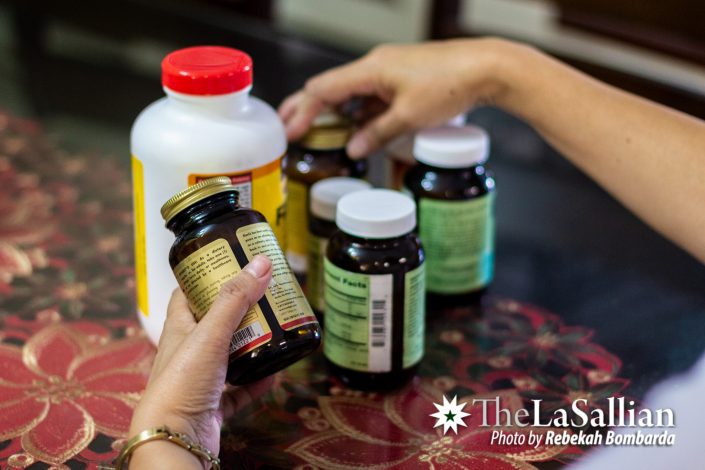Fatigue, tiredness, colds, and any other incurable illness despite medication—these are just some examples of symptoms that many people go to the doctor’s office for. It is possible, however, that there are underlying issues that standard medical tests may not accurately detect.
To address this, Filipino physician Dr. Theodore Achacoso pioneered the establishment of a new practice known as Health Optimization Medicine (HOMe). This “clinical framework” intends to detect specific hormone and nutrient imbalances that impede the efficiency of a person’s bodily function.
It does so by observing the patient’s condition on a “cellular level”, evaluating a person’s physical state not just at an organ level, but at a biochemical level. The process, as HOMe practitioner and obstetrician-gynecologist Dr. Cenia Lucas-Acevedo reveals, can “likely pick up complications or imbalances way ahead—before illness becomes apparent.”
“Initially, subtle biochemical imbalances can be compensated for by the body, but if left uncorrected for a long time, compensation fails and an illness may manifest,” she explains.
Defining ‘health’
Lucas-Acevedo shares that before she got into HOMe, she did not really know how to define “health”. She remarks, “I think the default definition for most conventional doctors is if [patients] pass [checkups] with flying colors.” This meant that patients who show no signs of illness are the ones typically considered to be “healthy”.
But such a fixed definition cannot be applied to all patients. “We’ve known a number of people who have passed [regular checkups] but suddenly get sick really bad,” she notes. Lucas-Acevedo considers these tests as only effective in detecting problems at an “organ-level”.
She instead opts to define “health” from a “HOMe standpoint”, which simply means an absence of disease and a bodily state of “perfect balance everywhere”—including nutrient intake, and internal levels of biochemical substances like hormones affecting a body’s function. Additionally, she mentions that instead of focusing on just extending one’s lifespan, HOMe is intended to improve one’s quality of life.
However, when HOMe is being practiced efficiently and the patient continuously maintains their wellness, she raises, “[Longevity of life] becomes a default effect because [the patient is] very healthy at the cellular level.”
Inventing a new approach
Despite HOMe’s definition of health, Lucas-Acevedo clarifies that the clinical framework does not necessarily treat diseases. Rather, it facilitates long-term healthcare by addressing various nutrient deficiencies and toxicities, an excess of these nutrients in the body, and hormonal imbalances. This is done through “metabolomics testing”, described as the evaluation and monitoring of a person’s metabolite levels. Metabolites are substances involved in metabolism—processes in the body that involve breaking down chemicals for energy or synthesizing them to create new compounds. These tests are used to determine how well a cell is functioning, particularly in a larger network of interactions with other cells. Similar to the tests used in conventional Western medicine, a specific range is used as a reference to determine whether the body is deficient or in excess of something.
“If you have a disease, the role of HOMe is to take care of the healthy remaining cells…”
Lucas-Acevedo gives an example of the process; “If you’re deficient in vitamin D, we supplement [you] specifically with vitamin D [supplements].”
The supplements that HOMe doctors prescribe are bioidenticals—compounds that are chemically similar to hormones naturally produced or used by the body. These supplements, however, are not meant to compete with prescription medicine; instead, they are given to complement conventional medical care. “Some improve on prescription [medicines] alone, some on HOMe alone, and others need both HOMe and prescription [medicines],” Lucas-Acevedo notes.

HOMe’s process differs from that of Biomedicine’s approach to treating patients, which Achacoso describes as “very reactive”. Lucas-Acevedo, meanwhile, declares the conventional methods as a “band-aid treatment” in comparison to HOMe’s method of being “foundational”.
She expounds, “If you have a disease, the role of HOMe is to take care of the healthy remaining cells, [while] a specialist—a conventional [medical] doctor—would [focus on treating] your sick cells.”
Experiencing treatment
“I was inspired to train in HOMe because I would consider my son’s case to be almost hopeless,” Lucas-Acevedo reveals. After her son was diagnosed with depression, they tried mainstream Medicine but to no avail. Through metabolomics testing and HOMe, they learned of the “specific unique imbalances” in her child’s metabolism, which she claims conventional tests were unable to detect.
Helping the doctor with her conundrum, HOMe was able to convince Lucas-Acevedo to continue practicing its approach. She justifies, “If we could help [others who do not respond to conventional treatment like] my son, think of everybody else I could help through [HOMe].”
Her vision for HOMe, which is in accordance with Achacoso’s, is just beginning. Lucas-Acevedo mentions that HOMe is not just limited to medical doctors—nutritionists and sports coaches have also begun the trend of studying its process, calling themselves Health Optimization Practitioners (HOPe).
She, however, stresses that HOPe are only limited to giving patients and clients advice on nutrition and vitamin balancing, as medical doctors should prescribe medications like hormone drugs.
Physicians who also want to know more about HOMe are also welcome to learn its clinical framework through online courses with Continuing Medical Education credit—classes designed to add to a physician’s knowledge and skills, which many hospitals require for their doctors to remain certified by their respective medical associations—some of which Lucas-Acevedo had a hand in co-authoring. Much to her excitement on HOMe’s popularity and the plans ahead, she advocates, “Our purpose is to train more doctors and practitioners on how to interpret and prescribe the ‘HOMe way’.”
